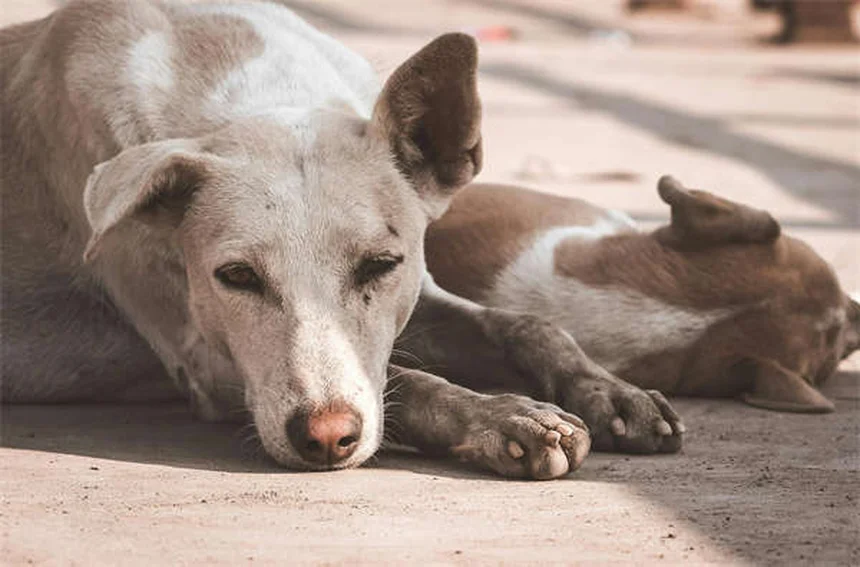Guinea Pig Calcium Deficiency: Signs, Treatment & Prevention
Is your guinea pig showing strange symptoms? Calcium deficiency in guinea pigs is more common than you might think, especially in pregnant or nursing females. The answer is clear: calcium deficiency can be serious, but it's treatable if caught early. I've seen firsthand how quickly these little guys can go downhill when their calcium levels drop too low.The scary part? The symptoms often look just like pregnancy toxemia (a deadly condition), but with one key difference - calcium deficiency is usually easier to fix with proper treatment. In this guide, we'll walk through everything you need to know to keep your furry friend healthy, from spotting the early warning signs to creating the perfect calcium-rich diet. Let's dive in!
E.g. :How to Save a Choking Cat: Step-by-Step Heimlich Maneuver Guide
Is Your Guinea Pig Getting Enough Calcium?
Hey there fellow guinea pig lovers! Let's talk about something super important - calcium deficiency in our furry little friends. This isn't just some minor issue - it can actually look a lot like pregnancy toxemia, which is basically blood poisoning. The big difference? Pregnancy toxemia is way more dangerous and often deadly.
Spotting the Warning Signs
Ever noticed your guinea pig acting strange? Here's what to look for:
Calcium deficiency usually shows up 1-2 weeks before or after birth. Your piggy might seem dehydrated, super tired, not interested in food, or even have muscle spasms. The scary part? Some guinea pigs don't show any signs at all before suddenly passing away.
Now here's something interesting - did you know obese guinea pigs or ones that have had multiple pregnancies are more at risk? That's because pregnancy takes a huge toll on their bodies, draining their calcium stores for the babies and milk production.
Why Does This Happen?
Let me break it down for you:
Think of calcium like the building blocks for your guinea pig's body. When they're pregnant or nursing, they're basically construction workers building a whole new tiny guinea pig! That takes a ton of resources. If we don't give them enough high-quality food with proper nutrients, their bodies start running on empty.
 Photos provided by pixabay
Photos provided by pixabay
Getting the Right Diagnosis
Here's what you'll need to tell your vet:
- Your guinea pig's health history
- When symptoms started
- Any recent pregnancies
- What they've been eating
The vet will do a physical exam and probably check blood calcium levels. They might need to rule out other conditions first - kind of like how detectives eliminate suspects to find the real culprit!
Treatment Options That Work
Good news! Fixing calcium deficiency is usually pretty straightforward:
| Treatment | How It Helps |
|---|---|
| Dietary supplements | Boosts calcium levels fast |
| Special formulated food | Provides ongoing nutrition |
But remember - always check with your vet before giving any supplements. Too much calcium can cause problems too!
Keeping Your Guinea Pig Healthy Long-Term
Want to know the secret to preventing calcium issues? It's all about that diet!
High-quality commercial guinea pig food is your best bet - especially the kind made specifically for pregnant or nursing piggies. Think of it like buying premium gas for your car instead of the cheap stuff - your guinea pig's body will run so much better!
Here's a question for you: Did you know that some veggies can actually help with calcium levels? Dark leafy greens like kale are great, but feed them in moderation. Too much can cause other issues.
The answer is simple - variety is key! Rotate different calcium-rich foods to give balanced nutrition without overdoing any one thing.
 Photos provided by pixabay
Photos provided by pixabay
Getting the Right Diagnosis
If your guinea pig is expecting, she needs extra TLC:
- More frequent vet check-ups
- Special pregnancy-formulated food
- Quiet, stress-free environment
Pro tip: Keep a close eye on her eating habits. If she stops eating, that's a red flag that needs immediate attention!
When to Worry About Long-Term Issues
Most calcium problems happen around pregnancy, but sometimes they can be ongoing. If your guinea pig keeps having issues, you might need to:
- Continue supplements long-term
- Get regular blood tests
- Adjust their diet permanently
Here's another question: What if your guinea pig isn't pregnant but still shows symptoms? That could signal a more serious underlying condition that needs veterinary attention ASAP.
The answer is clear - don't wait! Get them to the vet right away. Better safe than sorry when it comes to our little buddies' health.
Creating the Perfect Guinea Pig Diet
Let me share what I've learned about feeding guinea pigs for optimal calcium levels:
Daily must-haves:
- Fresh timothy hay (unlimited!)
- High-quality pellets (1/8 cup per day)
- Fresh veggies (about 1 cup daily)
Avoid iceberg lettuce - it's basically just crunchy water with no nutritional value. Instead, go for romaine or red leaf lettuce as a base, then add other goodies!
 Photos provided by pixabay
Photos provided by pixabay
Getting the Right Diagnosis
This is important - supplements can be great, but only when used correctly. Too much calcium can lead to bladder stones, which are painful and dangerous. That's why it's crucial to:
- Only use vet-approved supplements
- Follow dosage instructions exactly
- Monitor your guinea pig closely
Remember, we're trying to hit that perfect balance - not too little, not too much!
Emergency Situations
If your guinea pig shows severe symptoms like seizures or complete loss of appetite, don't wait - get emergency veterinary care immediately. These could be signs of advanced calcium deficiency or other serious conditions.
Keep your vet's emergency number handy, just like you would for human family members. Our guinea pigs depend on us to be their advocates!
Final Thoughts on Prevention
The best treatment is always prevention. By feeding a proper diet, monitoring your guinea pig's health, and getting regular check-ups, you can avoid most calcium-related issues.
And remember - guinea pigs hide illness well. That's why it's so important to know what's normal for your pet and notice even small changes in behavior or appetite.
Now go give your guinea pig some extra love (and maybe a piece of vitamin C-rich bell pepper)! They'll thank you with those adorable squeaks and popcorns.
The Hidden Dangers of Calcium Imbalance
You know what's wild? Calcium doesn't just affect bones - it's crucial for nerve function and muscle contractions too! When levels drop too low, your guinea pig's entire nervous system can go haywire. That's why those muscle spasms happen - their little bodies are literally short-circuiting!
Beyond the Obvious Symptoms
While we often look for physical signs, calcium deficiency can mess with behavior too.
Ever seen your guinea pig suddenly become super jumpy or aggressive? That might not just be a bad mood - it could be their nerves firing all wrong because of calcium issues. I've had piggies who went from cuddle bugs to tiny Hulk monsters when their levels were off!
The sneakiest symptom? Changes in vocalizations. Your normally chatty guinea pig might go quiet, or their usual "wheeks" could sound strained. It's like their internal microphone is running low on batteries!
The Calcium-Pregnancy Connection
Here's something most people don't realize - calcium needs skyrocket during late pregnancy and nursing.
Imagine this: A mama guinea pig producing milk loses about 150-200mg of calcium daily! That's like us trying to donate a cup of blood every day while running a marathon. No wonder their bodies struggle to keep up! The table below shows just how dramatic the increase is:
| Life Stage | Daily Calcium Need |
|---|---|
| Normal Adult | 50-100mg |
| Late Pregnancy | 200-250mg |
| Nursing | 300-350mg |
Now here's a question that might surprise you: Why don't wild guinea pigs have these problems as often? The answer lies in their natural diet and breeding patterns - wild ones eat a wider variety of calcium-rich plants and don't breed as frequently as our domestic pets.
The Gut Health Factor
Let's talk about something most guinea pig owners overlook - gut absorption.
Even if you're feeding calcium-rich foods, your piggy might not be absorbing it properly. Stress, antibiotics, or digestive issues can all interfere. It's like having a full bank account but forgetting the PIN number - all that calcium just sits there unused!
Pro tip: Adding a probiotic to their diet can help maximize nutrient absorption. Just make sure it's specifically formulated for small herbivores.
Calcium Myths Debunked
There's so much misinformation out there about guinea pig nutrition!
Myth #1: All dark greens are equal. Nope! While kale is great, spinach contains oxalates that actually block calcium absorption. It's like putting a "Do Not Enter" sign on your guinea pig's digestive tract!
Myth #2: More calcium is always better. Wrong again! Excess calcium can lead to painful bladder stones. We're aiming for that perfect Goldilocks zone - not too little, not too much.
Environmental Stressors
Did you know stress can deplete calcium stores faster than a poor diet?
Loud noises, frequent handling, or cage changes can all trigger stress responses that burn through nutrients. I once had a guinea pig who lost weight after we redecorated the living room - talk about sensitive!
Creating a calm environment is just as important as proper feeding. Try keeping their cage in a quiet area and maintaining consistent routines.
The Vitamin D Connection
Here's the kicker - calcium needs vitamin D to work properly!
Without enough D, all that calcium you're feeding might as well be pebbles. But guinea pigs can't make vitamin D from sunlight like we do - they need it in their food. That's why quality commercial pellets are so important - they're fortified with the right balance.
Ever wonder why some guinea pigs develop deficiencies even on good diets? Now you know - it might not be the calcium itself, but the helper nutrients that aren't present!
Breeding Considerations
If you're thinking about breeding, calcium needs should be part of your planning.
Back-to-back pregnancies are especially risky - it's like running a marathon without time to recover between races. Responsible breeders always allow at least 4-6 months between litters to let mom rebuild her nutrient stores.
Here's a question that might change how you think about breeding: Is your guinea pig physically ready for pregnancy? The answer involves more than just age - body condition, diet history, and overall health all play crucial roles in calcium management during pregnancy.
Alternative Calcium Sources
Beyond commercial foods, nature provides some great options!
Dandelion greens (from pesticide-free areas) are calcium powerhouses. Just rinse them well! And those white streaks you sometimes see on hay? That's actually calcium carbonate - nature's own supplement.
But remember - introduce new foods slowly. A sudden diet change can cause digestive upset, making it harder to absorb nutrients when they need them most!
Monitoring Techniques
You don't need to be a vet to keep tabs on your guinea pig's calcium status.
Simple weight tracking can reveal problems early - a sudden drop often precedes other symptoms. I keep a little notebook by each cage to record weekly weights. It's caught several health issues before they became serious!
Another easy check? Skin elasticity. Gently pinch the skin on their back - if it doesn't snap back quickly, dehydration (a calcium deficiency red flag) might be setting in.
The Emotional Toll
Let's be real - dealing with a sick guinea pig is stressful for owners too.
When my first guinea pig developed calcium issues, I felt so guilty! But here's the truth - these problems can sneak up on anyone. What matters is catching them early and getting proper care.
Don't beat yourself up if issues arise. Instead, focus on becoming the best guinea pig parent you can be - your furry friend appreciates every effort!
E.g. :Calcium Deficiency in Guinea Pigs | PetMD
FAQs
Q: How can I tell if my guinea pig has calcium deficiency?
A: Watch for these key signs: loss of appetite, muscle spasms, lethargy, or convulsions. The tricky part? Some guinea pigs show no symptoms at all before suddenly becoming critically ill. I always tell my readers - if your pregnant or nursing guinea pig acts "off" in any way, don't wait! Get to the vet immediately. The 1-2 weeks before and after birth are especially risky times for calcium deficiency to develop.
Q: What causes calcium deficiency in guinea pigs?
A: The main culprits are pregnancy, nursing, poor diet, and stress. Here's why: pregnant guinea pigs need extra calcium for their developing babies, then more for milk production. Obese guinea pigs or those with multiple pregnancies are at highest risk. From my experience, many owners don't realize how quickly these little guys can deplete their calcium stores - it's like running a marathon every day without proper fuel!
Q: How do vets diagnose calcium deficiency?
A: Your vet will need a complete health history and will perform a physical exam. They'll likely check blood calcium levels to confirm. What many owners don't realize is that vets often need to rule out pregnancy toxemia first - a more severe condition with similar symptoms. I always recommend bringing your guinea pig's food to the appointment - this helps the vet evaluate their current diet.
Q: What's the best treatment for calcium deficiency?
A: Dietary supplements are usually the first line of defense, but only under veterinary guidance. Too much calcium can cause other health problems! In my practice, I've found that combining short-term supplements with long-term diet changes works best. High-quality commercial guinea pig food formulated for pregnant/nursing pigs is ideal. Remember - treatment should always be tailored to your specific guinea pig's needs.
Q: How can I prevent calcium deficiency in my guinea pig?
A: Prevention starts with proper nutrition! Feed high-quality pellets, unlimited timothy hay, and calcium-rich veggies (like kale in moderation). For pregnant guinea pigs, I recommend switching to pregnancy-formulated food before breeding even occurs. The biggest mistake I see? Owners waiting until symptoms appear to make dietary changes. Be proactive - your guinea pig's health depends on it!







